Anne Bakar Inducted Into Alameda County Women's Hall of Fame
/It is with great pride that we share Telecare President and CEO Anne Bakar’s recent induction to the Alameda County Women’s Hall of Fame.
Read MoreIt is with great pride that we share Telecare President and CEO Anne Bakar’s recent induction to the Alameda County Women’s Hall of Fame.
Read MoreAnne Baker, President and Chief Executive Officer of Telecare, advocated for Full Service Partnerships (FSPs) during a panel discussion on Addressing Homelessness and Behavioral Health at the Steinberg Institute Vision 2030 Solution Symposium.
Read MoreTelecare is delighted to announce the appointment of Warren “Mickey” Blanks as Telecare’s new Senior Vice President and Chief People Officer, effective October 14, 2024.
Read MoreTelecare is honored to announce the appointment of two new outstanding Directors to Telecare’s Board: Rich Leib and Mike Goodwin.
Read MoreTelecare is pleased to announce the appointment of Dawan Utecht as Telecare’s new SVP and Chief Development Officer, effective January 3, 2022.
Read MoreWe at Telecare are saddened to hear of the sudden and tragic loss of Alameda County District 3 Supervisor, Wilma Chan.
Read MoreWe at Telecare are deeply saddened by the passing of Jay Mahler, whose advocacy changed the way we view and treat mental health.
Read MoreIt is with great pride that we share Telecare President and CEO Anne Bakar’s recent election to the Board of the Steinberg Institute.
Read MoreTelecare is delighted to announce the recent appointments of two new leaders to our Board of Directors: Bruce Nardella, former President and CEO of The MENTOR Network, and Patricia Golden Webb, former Senior Executive Vice President and Chief Administrative Officer for CommonSpirit Health.
Read MoreWe are energized and encouraged to see three laws signed by California Governor Gavin Newsom to advance access to behavioral health services in the state.
Read MoreWe at Telecare are very saddened by the passing of Bertrand Lubin and Gail Steele, healthcare heroes in Alameda County, California.
Read MoreWe at Telecare are very saddened by the passing of William Anthony, Ph.D.
Read More
In early November 2019, Telecare was honored to welcome Patrick Kennedy and Tom Insel, MD, as speakers at our All Leader Conference in Oakland, CA.
Our leadership staff were joined by a wonderful group of long-term Telecare customers, stakeholders, and family and consumer advocates, to think about the future of behavioral health — and how we can individually and collectively make our systems and services more powerful and empowering for the people we serve.
Our interactions with Patrick and Tom left us newly energized to rise to the challenge. We hope you feel the same way, too.
Anne Bakar, Telecare’s President and CEO, had the honor of being named a Commissioner of the California Future Health Workforce Commission at its inception in late 2017.
She is the only commissioner who brought a dedicated behavioral healthcare perspective to the Commission. In that capacity, she successfully advocated for specific behavioral health workforce recommendations that were included among the Commission’s final top ten recommendations.
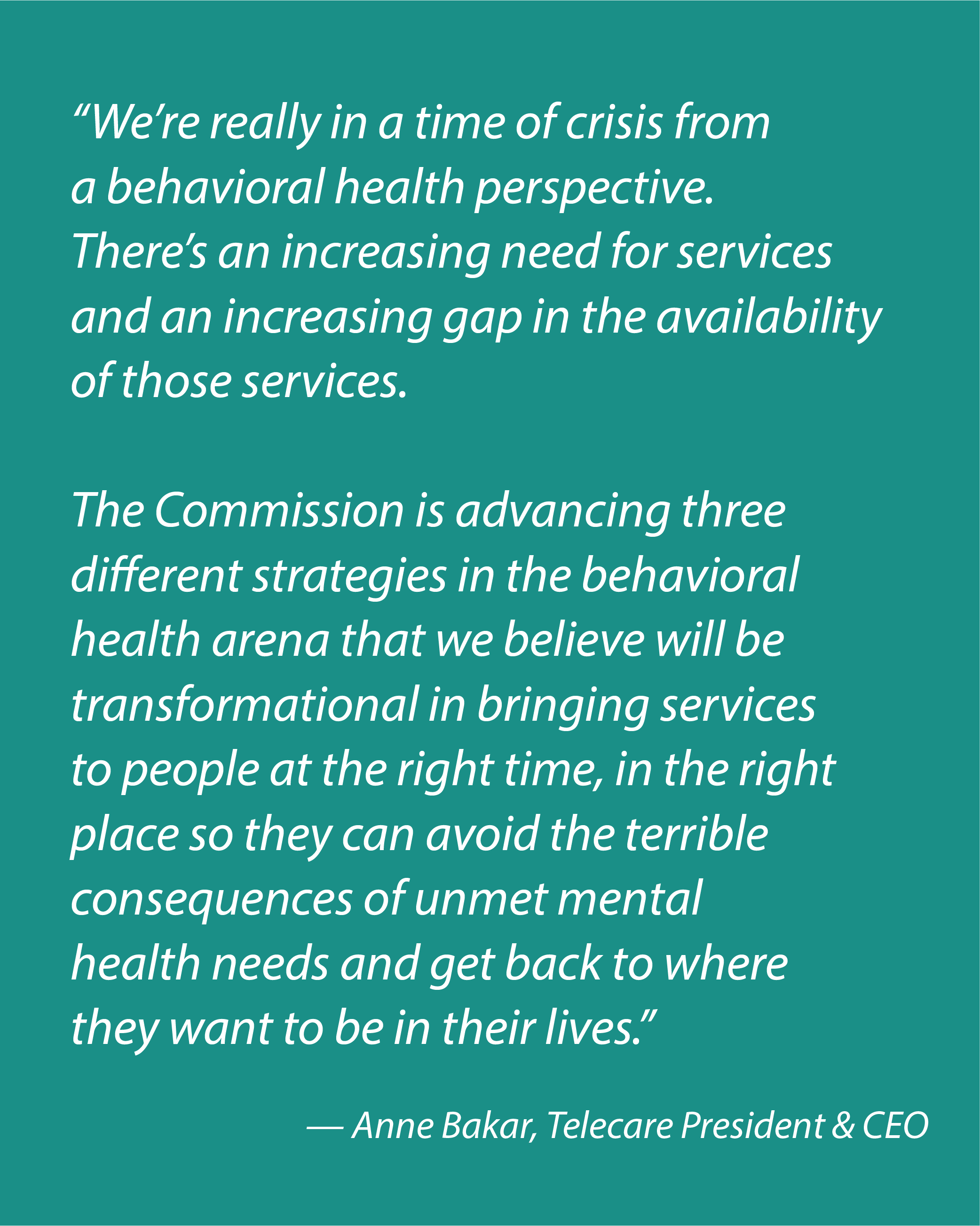
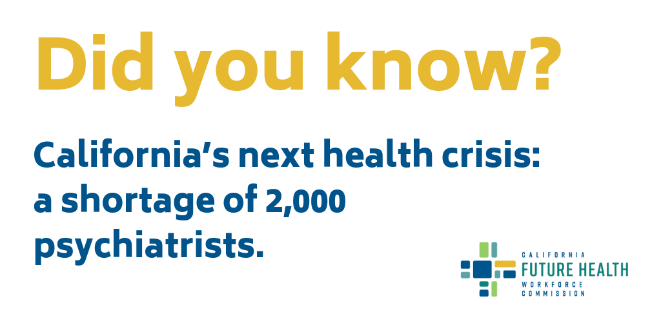
Expand the number of psychiatric residency positions in the state. This would enable California to add 2,202 psychiatrists to its workforce by 2030. This effort is part of a larger priority to expand residency positions for both primary care and psychiatry. The investment required to complete this work is estimated at $1.562 billion over ten years. In ten years, California is currently expected to have 41% fewer psychiatrists than it needs. From a behavioral health perspective, this effort will be critical in helping California fill the gap in care with psychiatrists and other prescribers.
Develop a psychiatric nurse practitioner program that recruits and trains providers to serve in underserved rural and urban communities. This would enable California to provide treatment to more than 350,000 patients over five years.
Scale the engagement of peer providers through certification, training, and reimbursement. This would enable people with mental illness and substance use disorders to get support from people with lived experience, which supports better outcomes and promotes recovery and self-sufficiency.
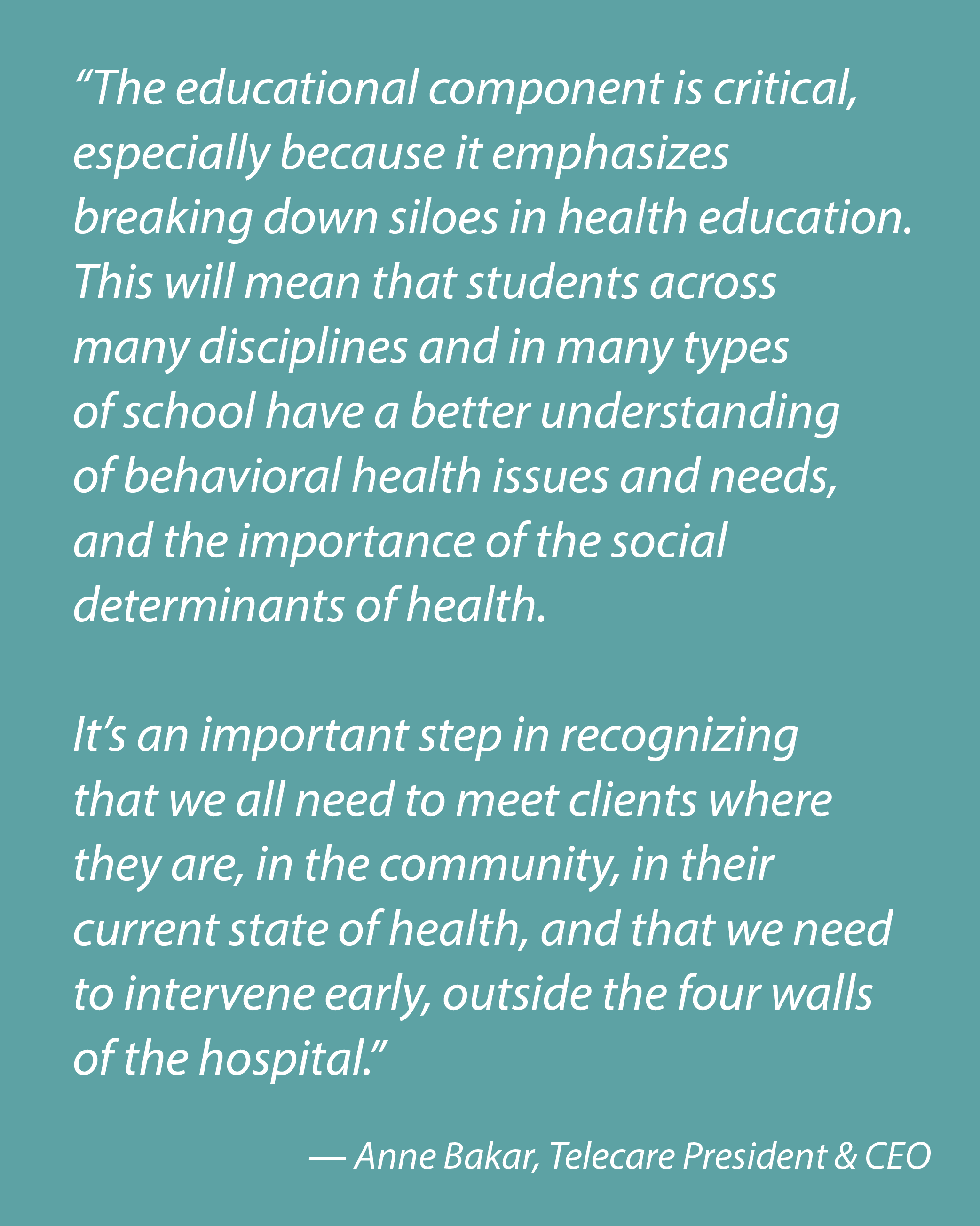
The Commission has made its report (executive summary here) available to California’s Governor, legislators, media, and key stakeholders across many diverse systems, from education to healthcare, and beyond. Workforce Commissioners, including Anne, continue to be actively involved, advocating for the Commission’s recommendations around California.
The Commission is actively supporting and advocating for important pieces of legislation that can advance the identified behavioral health priorities. These include:
SB 10 (Senator Jim Beall): Establishing a peer certification process to enable people with lived experience of mental illness to help others
AB 890 (Assemblymember Jim Wood): Letting nurse practitioners do the work they have been trained to do
Finally, the Commission has also recommended establishing a statewide infrastructure, starting in 2019, to implement the recommendations in partnership with stakeholders, monitor progress, and to adjust as needs and resources change.
In her role as President and CEO of Telecare, Anne Bakar leads a hands-on provider organization, with more than 3,700 staff members serving nearly 30,000 individuals per year with complex behavioral health needs. In this capacity, Anne has also been leading Telecare’s efforts to implement strategies to build and enrich its own health workforce.
Establishing a physician services organization to help recruit and manage our workforce of psychiatrists, nurse practitioners, and other medical staff.
Implementing telepsychiatry as a tool to help ensure psychiatric coverage for our programs, which has been especially helpful in more rural areas
Establishing a workforce development plan to help Telecare hire more than 2,000 new staff by 2020. Our plan includes not only hiring new staff, but cultivating leadership and growth for our existing staff at all levels.
Articulating and sharing our organization’s vision for diversity and inclusion.
Working to meet our goal of having two peer staff in all Telecare programs by 2020.
Creating a peer support job family and career ladder to foster personal growth into diverse roles from peer recovery specialists to peer teams leads, and more.
There is more work to do in the years ahead, but we are encouraged and optimistic to be taking steps toward improved care, increased access, and a more skilled, diverse staff who can deliver that care with compassion, confidence, and cultural humility.
CA Future Health Workforce Commission
Social Determinants of Health
Steinberg Institute Legislation
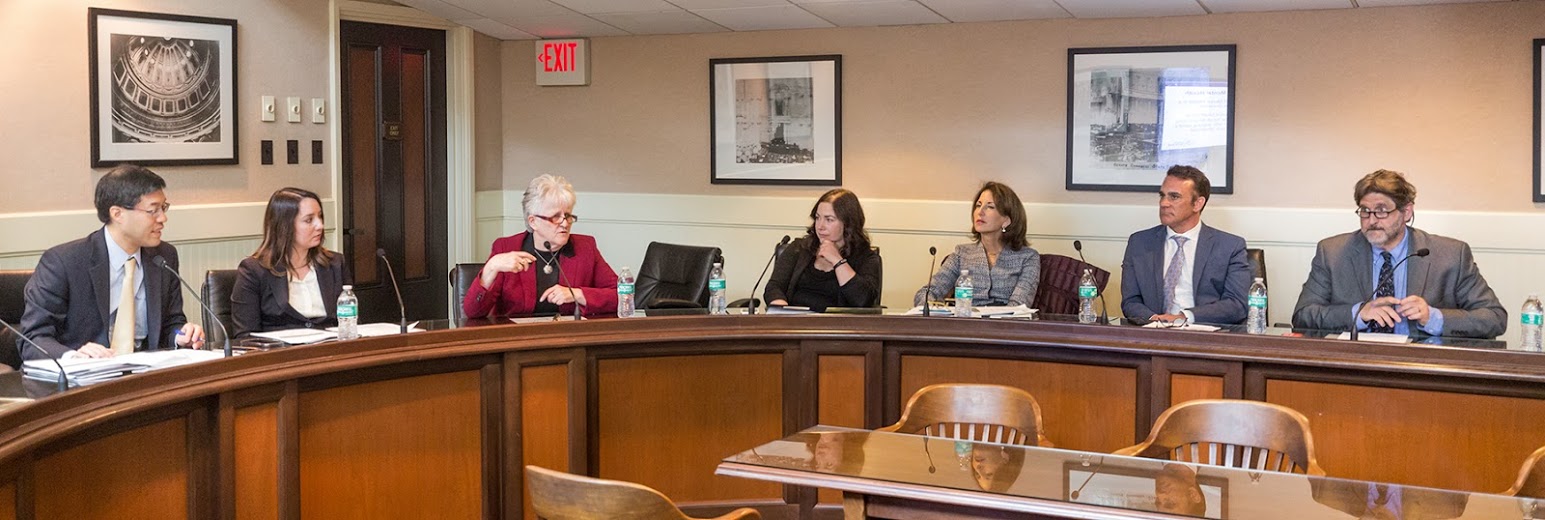
Senator Richard Pan (D-Sacramento), far left, hosts a forum at the state capitol on february 28, 2018. Photo by Sue Peri.
On February 28, Telecare’s President and CEO, Anne Bakar, presented at Mental Health Delivery: The Global Forefront, a forum hosted by Sen. Richard Pan (D-Sacramento) in partnership with the Steinberg Institute at the California state capitol. Anne’s presentation focused on system innovations that have been taken to scale in California as a result of MHSA and SB82 funding. In particular, she highlighted the success of Full Service Partnership programs (FSPs) and crisis programs which California counties have deployed in partnership with providers like Telecare.
“The goal of the briefing was both to educate and inspire,” said the Steinberg Institute. “With bold new leadership in key sectors of the mental health community, California stands at a pivotal juncture to transform and advance our own system of care. We believe there are lessons for our state in understanding how these innovators have succeeded in shifting the tide.”
In addition to Anne, the forum featured Dr. Roberto Mezzina, Director of the Department of Mental Health in Trieste, Italy; Dr. Nicole Sherren, Scientific Director of the Palix Foundation in Canada; Dr. Pat McGorry, Executive Director of Orygen; Dr. Anne Sullivan, Commissioner of the N.Y. State Office of Mental Health; Dr. Steven Adelsheim, Director of the Stanford Psychiatry Center for Youth Mental Health and Wellbeing; and John Boyd, Chair of California Mental Health Services Oversight and Accountability Commission. In attendance were other state legislators, Senator Scott Wiener (D-San Francisco), District 6 Assemblyman Kevin Kiley, and Sacramento’s Mayor Darrell Steinberg.
Below is a brief summary of Anne’s presentation. You can view the entire forum video by clicking here, and download a copy of Anne’s presentation by clicking here.
Full Service Partnership (FSP) Programs
Funded by the MHSA and tied to specific outcomes, FSPs have dramatically contributed to reductions in hospitalizations, incarcerations and homelessness statewide. Statewide, approximately 30,000 individuals per year have been able to make strides in their recovery due to services funded by the MHSA.
Demonstrated success serving co-occurring and complex populations, including those with significant substance use and justice involvement.
Represents an innovative model which was taken to scale because of state leadership.
“Pay for Success”
Telecare is honored to run the nation's first Pay for Success behavioral healthcare program, located in Santa Clara County, CA.
Introducing value-based performance measures into the behavioral health field
Has more than paid for itself through positive outcomes; over $500k to date contributed to the system of care.
SB82 Investment in Mental Health Wellness
Sponsored by Senate Pro Tem Darrell Steinberg, SB82 provided both capital and operating state funds to create comprehensive systems of crisis services using proven program models.
These programs have been very successful reducing the need for emergency hospital care and discharging individuals back to their community setting.
Telecare’s crisis residential and crisis stabilization programs in Riverside County are outstanding examples of how counties have deployed these funds creatively.

Anne Bakar, Telecare's President and CEO, presenting at the California Future Health Workforce Commission. Photo by the Steinberg Institute.
Telecare CEO Anne Bakar, speaking as a commissioner and advocate for mental health policy, recently presented some the efforts of the California Future Health Workforce Commission at a special forum hosted by the Steinberg Institute and Kaiser Permanente. The forum explored the challenges facing California’s mental health workforce and innovative strategies for rethinking and adapting traditional models of care. In attendance were representatives for leading policymakers, health organizations, hospital systems, research institutes, government agencies, mental health providers, and advocacy groups.
In addition to Anne, the forum featured presentations from Darrel Steinberg, Steinberg Institute founder and Mayor of Sacramento; Dr. Patrick Courneya, Executive Vice President and Chief Medical Officer at Kaiser Permanente; Dr. Don Mordecai, National Leader for Mental and Behavioral Health at Kaiser Permanente; Joe Parks, M.D., Medical Director, National Council for Behavioral Health; Karen Larsen, LMFT, Director, Yolo County Health and Human Services Agency; Beth Phoenix, RN, PhD, FAAN, Vice-Chair, Dept. of Community Health Systems, UCSF School of Nursing; Susan Chapman, RN, PhD, FAAN, Professor, UCSF School of Nursing; David Liu, Faculty Physician, Dept. of Psychiatry and Behavioral Sciences, UC Davis School of Medicine; Scott Zeller, M.D., Vice President, Acute Psychiatric Medicine, Vituity; & Seth Thomas, M.D., Director of Quality and Performance, Vituity; and Glen Moriarty, CEO and Founder, 7 Cups.
As a commissioner, Anne communicated the key Workforce Commission strategies that are being recommended for behavioral health:
Anne advocated specifically for legislation regarding:
You can view the entire presentation by clicking here or scrolling through the slideshow to the above right. You can download the forum’s resources and agenda by clicking here.
Telecare’s President and CEO, Anne Bakar, is honored to be participating in the future-focused efforts of two important groups: The California Future Health Workforce Commission and the Kennedy-Satcher Center for Mental Health Equity.
Anne is privileged to work alongside other leaders in the fields of health and mental health care, as well as state and national political leaders, as the groups plan, prepare for, and promote a new era of mental health equity, decreased stigma, and a robust, capable, diverse workforce.

https://futurehealthworkforce.org
As we move further into the twenty-first century, the field of behavioral healthcare continues to advance alongside physical healthcare, requiring new skills, knowledge, and expertise. Telecare's President and CEO, Anne Bakar, is honored and pleased to have the opportunity to serve as a California Future Health Workforce commissioner.
The Commission was funded by several large California healthcare foundations to develop a strategic plan to build the future healthcare workforce. This plan will include a set of practical short-, medium-, and longer-term solutions that can be adopted and implemented by the state, educational institutions, employers, and other stakeholders to address current and future gaps in the health workforce.
Along with other behavioral health leaders, Anne is also serving on the Behavioral Health Subcommittee to make recommendations to the broader Commission. As part of her work on the subcommittee, Anne is advocating for improvements such as enhanced behavioral health professions education, support for education and career development for unlicensed staff, removal of licensing and technology barriers for the future workforce, advancement of integrated care models, Peer Support Specialist Certification, and behavioral healthcare pay parity.

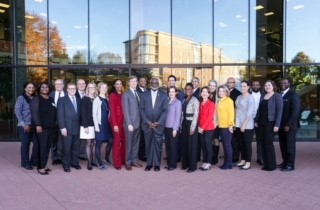
(L-R): Ayanna Smith (MSM), Shemeka Dawson (MSM), Jerry Reed (NAB), Saul Levin (NAB), Joe Pyle (NAB), Anita Everett (NAB), Sharon Rachel (MSM), Glenda Wrenn (MSM), Patrick Kennedy, Arthur Evans (NAB), David Satcher, Nathaniel Counts (NAB), Mary Giliberti (NAB), Chirlaine McCray (NAB), Vivek Murthy (NAB), Anne Bakar (NAB), Eve Byrd (NAB), Carol McDaid (NAB), LeRoy Reese (MSM), Liz Camacho (MSM), Victor Ede (MSM), Megan Douglas (MSM), Sayon Cooper (MSM)
As the national conversation about healthcare continues to evolve, we must raise our voices and advocate for equal access, coverage, and care standards for mental healthcare.
The Kennedy-Satcher Center for Mental Health Equity (KSCMHE) was jointly envisioned by the 16th U.S. Surgeon General, Dr. David Satcher, and former U.S. Representative Patrick J. Kennedy (D-RI) to further discussion of the most important challenges and opportunities for advancing best practices and policies for people living with mental health and substance use disorders. Building on their longstanding relationship and shared commitment to promoting mental health parity and health equity for people living with mental health and substance use disorders, the Center, led by Director Glenda Wrenn, is a clear voice advocating for those we serve.
Anne Bakar is honored to serve on the Kennedy-Satcher Center National Advisory Board, working closely with other national healthcare leaders to promote mental health equity on a national scale. The most recent Board meeting was held on November 27th, at the historic Morehouse School of Medicine.
Telecare President and CEO, Anne Bakar, was honored by the Alameda County Board of Supervisors on January 9th, 2018, for her leadership in providing excellent mental health services in Alameda County.
Alameda County Board of Supervisors President, Wilma Chan, commended Anne for her strong advocacy for mental health, for her partnership with Alameda County since joining Telecare in 1987, and for her success in guiding Telecare’s expansion through turbulent healthcare cycles over the years. During Anne's tenure, Telecare has grown from five Northern California inpatient programs in 1987, to more than 100 programs in eight states today.
Supervisor Chan also congratulated Anne on her recent induction into the Bay Area Council Business Hall of Fame for taking over as CEO of Telecare 30 years ago and building the company into a “national powerhouse.”
Anne was also recognized by the Board of Supervisors for her work in numerous civic and community activities, including volunteering for the National Council of Behavioral Health, the World President’s Organization, and the Jewish Community Federation, and advising the UC Berkeley School of Public Health and the UCSF Benioff Children’s Hospital in Oakland, CA.
In closing, Anne addressed the Board of Supervisors, saying, “It never would have been possible if I had not had the support of this board and the collaboration from this county. I want to genuinely thank you for your belief and support in making these types of programs happen.”
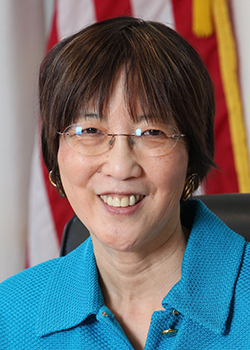
“Telecare has partnered with Alameda County since the late 70’s to provide a wide array of inpatient and outpatient services. Anne Bakar led the organization’s successful expansion through turbulent healthcare cycles over the years. We are very, very proud to have worked with her and are really impressed with the Telecare’s programs and the wonderful staff.”
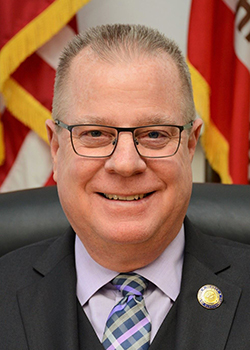
“Anne took Telecare and she turned it into something very special. And I know that her father is certainly looking down and is extremely proud of what Anne has built; but more importantly, he would be proud of the much-needed services that she (and Telecare) provide on a daily basis to people that are in need. That was the mission of Telecare. That’s why her father started the business, along with his partner. That’s what they wanted to do. They wanted to help people. And that’s been Anne’s focus since she took over the business with the passing of her father.”
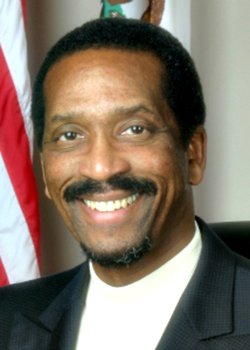
“In becoming familiar with Telecare and the staff and services that they provide to the mentally ill and other client populations, I’ve really come to admire both her [Anne] and her family-owned business. We’re just really pleased that they’re here in Alameda County and I hope they continue to provide quality service well into the future.”
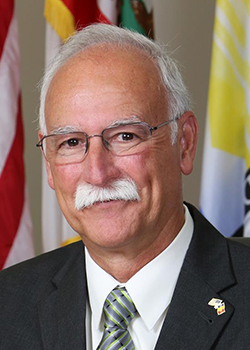
“I’ve had the privilege of having two good friends who were under your care at Telecare, and both came back very positive. I appreciate that. I’ve only been there [to Telecare programs] a couple of times and I look forward to visiting again. Congratulations.”
On November 9th, Telecare President and CEO Anne Bakar was inducted into the Bay Area Council's Business Hall of Fame. Featured in the video below is a short video honoring Anne, as well as her acceptance speech.
By Anne Bakar, President & CEO

Telecare’s new mission statement is moving us forward on many fronts: health, effectiveness, and complex needs. But it’s also intended to move us forward in the care of people with serious mental illness (SMI) and substance use issues.
At Telecare, we estimate that at least 75% of the people we serve have a serious mental illness and a co-occurring substance use issue.
At least 75%.
That means that at least 75% of our clients are trying to manage two very daunting recovery challenges. At least 75% are at risk of having their health compromised and their lives cut short. At least 75% may be facing shame, stigma, and punitive program rules that make it hard for them to be honest about their lives and get the help they need.
It’s unacceptable.
Our new mission statement reflects our focus not just on mental illness but on substance use as well.
We are focusing on bridging systems and closing gaps in care by training our staff about evidenced-based approaches to integrated care. This includes things like motivational interviewing and recognizing there are “stages of change” in substance use recovery: times when clients are ready to consider treatment for their addiction and times when they are not.
In addition to training staff about new tools and interventions, we are introducing Medication Assisted Treatment (MAT) to our practice. This is a vital intervention that we are well suited to provide as a professional organization with a wholly owned Physician Services Organization led by Dr. Jeff Gould. Consistent with this direction, we recently completed a pilot program on how detox could be accomplished through outpatient telemedicine.
In this month’s newsletter, you will learn more about how we are moving this aspect of our mission forward. You can read about our three-year SUDS plan, meet our new SUDS Director, and get more detail about these new approaches.
We hope you enjoy this preview, and we look forward to sharing our learning and growth.
50 Years of Services to People With Serious Mental Illness
©2018 Telecare Corporation. All rights reserved.